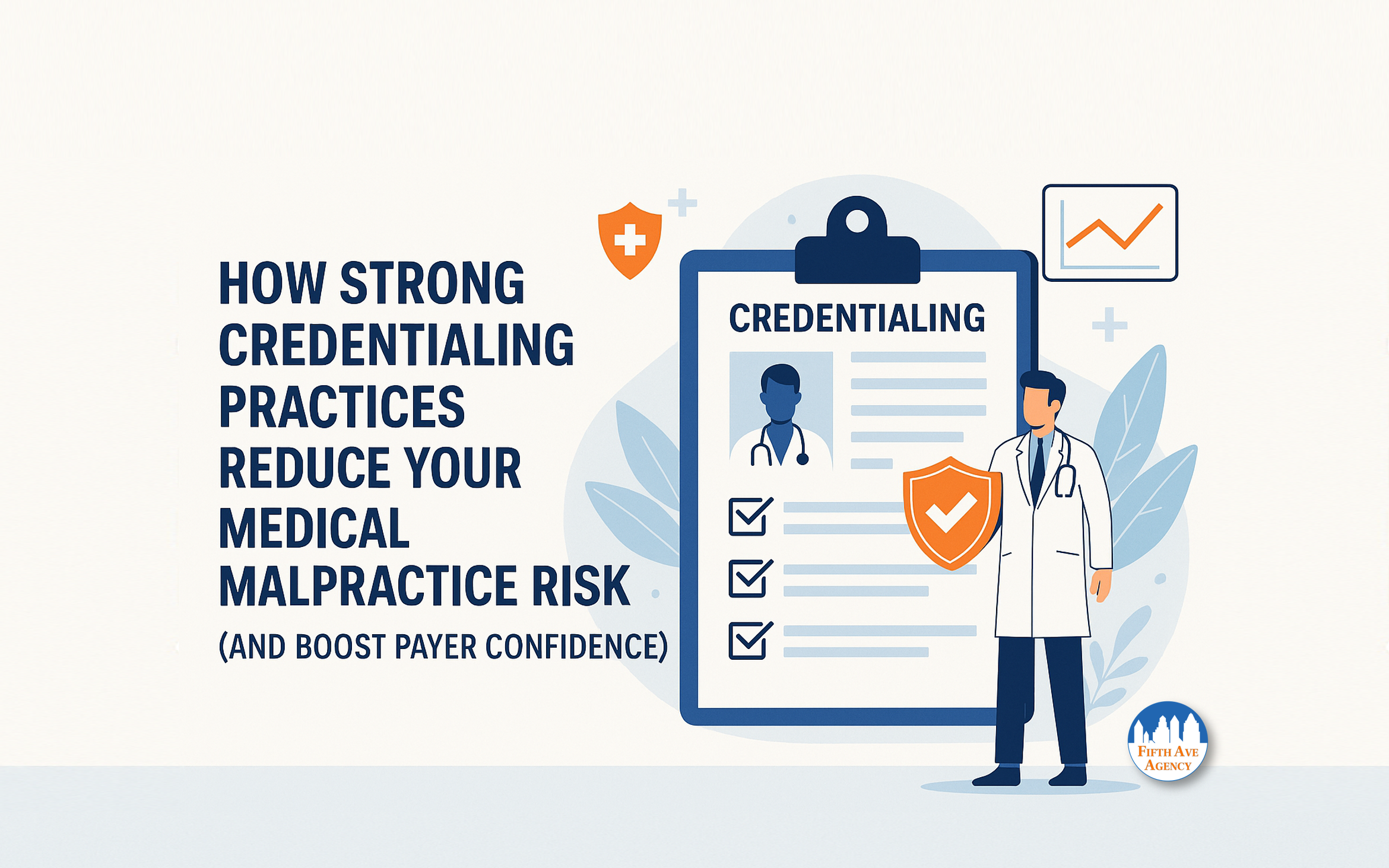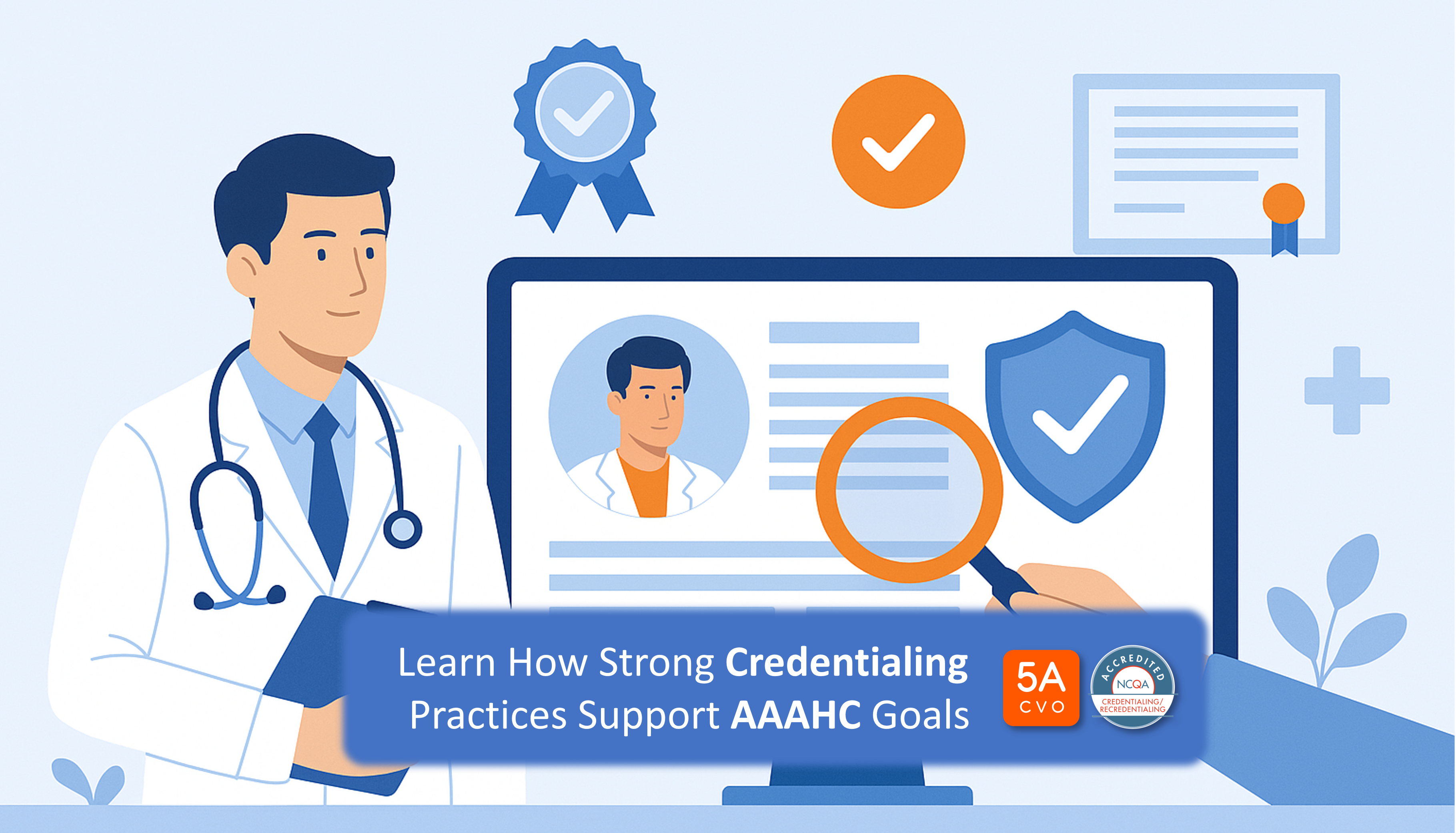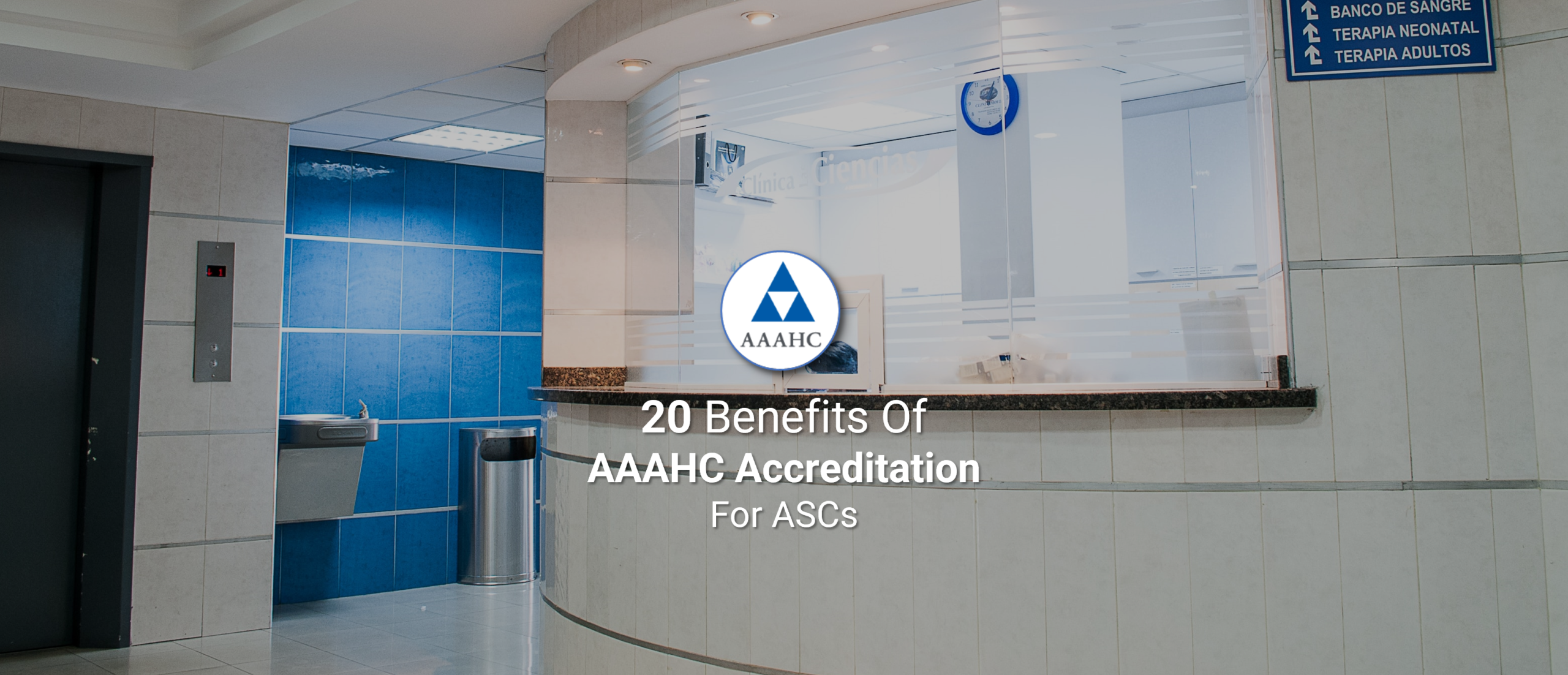Operational efficiency is crucial in the dynamic healthcare landscape. Provider credentialing and contracting are pivotal areas where healthcare organizations can enhance their operations. Traditionally, these processes have been labor-intensive and time-consuming. However, delegated credentialing, with a focus on delegated contracting, offers a potent solution to streamline these tasks and improve patient care.
In this article, we will explore delegated contracting, how it functions in the credentialing process, and its benefits to healthcare organizations, particularly in enhancing patient care.
As the regulatory environment continues to grow more complex, healthcare facilities are increasingly leaning on outside experts to handle the heavy lifting of payer negotiations and provider credentialing. This ‘heavy lifting’ includes managing complex payer contracts, ensuring provider compliance with payer standards, and handling the administrative tasks associated with provider credentialing. Outsourcing these functions reduces administrative strain and allows organizations to onboard new providers faster, making healthcare administrators feel more agile, responsive, and effective.
Healthcare administrators play a crucial role in the delegated contracting process. By understanding the fundamentals of delegated contracting in credentialing, they can make informed decisions about optimizing their operations. This understanding can improve the speed and quality of patient care, enhance relationships with payers, and ensure compliance with evolving industry standards.
What is Delegated Contracting in Credentialing?
Delegated contracting refers to a process where healthcare organizations, such as medical groups, hospitals, or healthcare networks, outsource the responsibility of managing provider credentialing and payer contracting to a third-party entity, often a Credentialing Verification Organization (CVO).
By entering into this contractual arrangement, the delegated organization assumes responsibility for ensuring that all healthcare providers meet the necessary qualifications, compliance standards, and credentialing requirements established by payers.
This arrangement can significantly reduce the administrative burden on healthcare organizations by centralizing the contracting process. It allows providers to focus more on patient care rather than the complexities of payer enrollment.
While the process may seem straightforward, there are several key components involved in delegated contracting:
- Contractual Agreement: A formal agreement is established between the healthcare organization and the delegated entity (e.g., CVO). This agreement outlines the specific responsibilities for both credentialing and contracting with payers.
- Credentialing Compliance: The delegated entity takes responsibility for primary source verification (PSV) and ensuring that all providers meet payer standards. This guarantees that providers are fully compliant and eligible to participate in payer networks.
- Payer Relationships: The delegated entity manages payer relationships, negotiating and maintaining contracts on behalf of the healthcare organization. They also handle renewals, updates, and necessary documentation to keep providers enrolled in health plans.
- Ongoing Monitoring and Oversight: Although the responsibility for credentialing and contracting is delegated, healthcare organizations and payers maintain oversight through audits and periodic reviews. These audits ensure the delegated entity complies with payer standards and meets the necessary credentialing requirements.
Benefits of Delegated Contracting for Healthcare Organizations
In today’s healthcare landscape, organizations are under immense pressure to manage an increasing volume of providers, maintain compliance with ever-evolving regulations, and meet payer demands for timely and accurate credentialing. Delegated contracting has emerged as a strategic solution to address these challenges head-on.
By outsourcing credentialing and payer contracting responsibilities to a specialized partner, healthcare organizations can alleviate administrative strain and improve the quality and speed of their provider enrollment processes. As a result, healthcare providers are better positioned to deliver uninterrupted care to patients while reducing operational risks and costs.
Below, we explore the key benefits of adopting delegated contracting.
Delegated contracting offers a number of benefits for healthcare organizations looking to optimize their operations:
- Reduced Administrative Burden: Healthcare organizations can significantly reduce the administrative workload for their internal teams by outsourcing credentialing and contracting. This enables providers and staff to focus on delivering quality patient care, relieving them from the burden of managing paperwork and payer negotiations and making them feel lighter and more efficient.
- Increased Efficiency: Delegated contracting centralizes the credentialing and contracting processes, reducing delays and ensuring faster provider enrollments. This leads to quicker access to payer networks, allowing providers to serve patients covered by various insurance plans sooner and making healthcare administrators feel more productive and effective.
- Cost Savings: When credentialing and contracting tasks are handled by a delegated entity, organizations can lower their operational costs by avoiding the need to hire and train additional staff for these complex processes. This instills a sense of financial responsibility and security in healthcare administrators.
- Compliance and Risk Management: Delegated entities, such as CVOs, are experts in compliance with industry regulations and payer standards. Their specialized knowledge reduces the risk of errors, ensuring healthcare providers meet all necessary requirements. Look for a CVO that meets high accreditation standards, such as an NCQA-Credentialing Accreditation.
- Streamlined Payer Contracting: One of the most significant benefits of delegated contracting is the streamlined communication and relationship management with payers. The delegated entity handles all payer interactions, making negotiating favorable contract terms easier, providing faster, more efficient provider enrollment times, managing recredentialing deadlines, and maintaining up-to-date provider enrollment status.
Challenges and Considerations in Delegated Contracting
While delegated contracting offers many advantages, there are some considerations that healthcare organizations should keep in mind.
First, the healthcare organization remains accountable for ensuring that the delegated entity complies with payer requirements. As such, payers may conduct periodic audits of the CVO or third-party organization to verify compliance. Establishing strong oversight and regular communication with the delegated entity is crucial to ensuring continued adherence to standards.
Second, finding a reliable and reputable CVO to handle delegated contracting is critical. It’s essential to evaluate the CVO’s experience, expertise, and track record in managing payer relationships, as this can significantly impact the success of your delegated contracting strategy.
Conclusion on Understanding Delegated Contracting in Credentialing: Streamlining Provider Enrollment
Delegated contracting in credentialing is an increasingly popular solution for healthcare organizations looking to optimize their provider enrollment and contracting processes. By delegating these responsibilities to a trusted entity, such as an NCQA Credentialing Accredited organization, healthcare providers can focus on patient care, reduce administrative burden, and improve operational efficiency. However, it’s essential to choose the right partner for delegated contracting and ensure that appropriate oversight is in place.
For healthcare organizations, this can mean faster access to payer networks, smoother operations, and reduced compliance risks. As healthcare continues to evolve, organizations that adapt and leverage delegated contracting will be better positioned to thrive in a competitive environment. Choosing the right partner with expertise in payer relationships can be the key to unlocking the full benefits of this model.
If you’re considering delegated contracting for your healthcare organization, Primoris Credentialing Network is here to help. With extensive experience in delegated credentialing and contracting, Primoris can manage the entire process on your behalf, ensuring your providers are credentialed quickly and accurately. Visit PrimorisCredentialingNetwork.com to learn more about how we can assist your organization with delegated credentialing and contracting.
Call to Action
Is your healthcare organization ready to streamline credentialing and contracting with payers? Visit PrimorisCredentialingNetwork.com today to explore how our team of experts can help you reduce administrative burdens, improve efficiency, and ensure compliance with payer standards. Contact us to learn more about our comprehensive credentialing services and start optimizing your provider enrollment process today!
More information about Primoris Credentialing Network
Primoris Credentialing Network is an NCQA Credentialing Accredited organization specializing in credentialing and provider enrollment. It offers 54+ health plan and network provider enrollment options. Primoris is a family member of Fifth Avenue Healthcare Services. Sister companies include 5ACVO (credentialing and primary source verification specialists) and Fifth Avenue Agency (MPLI and medical malpractice specialists).
For more information on Primoris Credentialing Network, please visit PrimorisCredentialingNetwork.com or Contact Us.
















